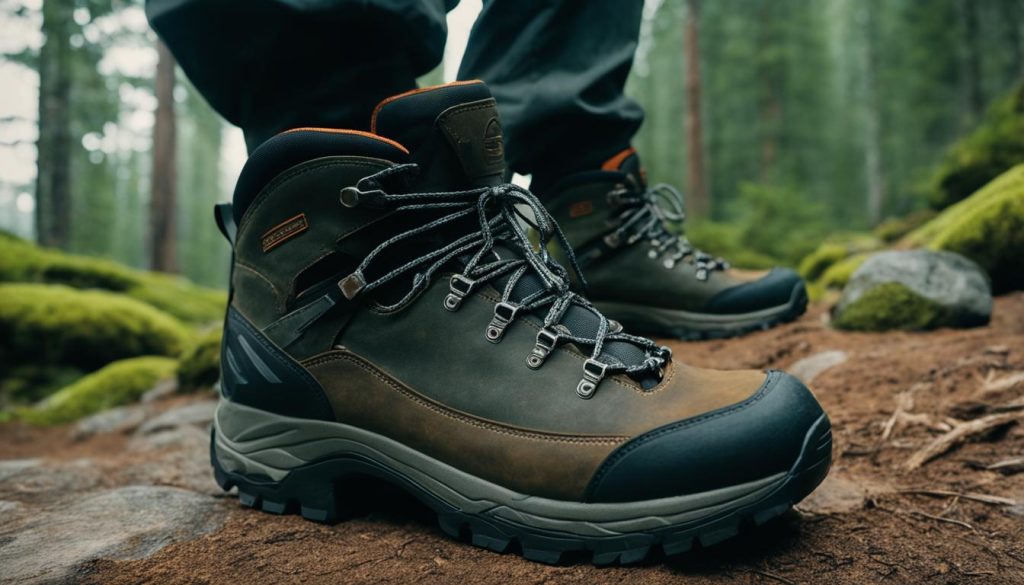As an avid hiker, you know the joys of exploring nature on foot. You breathe in the fresh air, take in the breathtaking views, and feel your muscles working with each step. However, there is one aspect of hiking that can put a damper on your outdoor adventure: ticks. These tiny, blood-sucking parasites can not only be a nuisance but also carry potentially dangerous diseases.
Fortunately, there are effective strategies and tick prevention tips that you can follow to protect yourself from ticks and ensure your hiking trips are safe and enjoyable. In this section, we will explore how to avoid ticks while hiking and provide you with tick safety tips that will ensure a tick-free hiking experience.
Key Takeaways
- Follow tick prevention tips to avoid ticks while hiking
- Check yourself and your gear regularly for ticks
- Use natural tick repellents for added protection
- Wear protective clothing while hiking to minimize skin exposure
- Stay on marked trails and avoid tall grassy areas where ticks are prevalent
Tick Prevention Tips for Hikers
When it comes to hiking with tick avoidance, prevention is key. By taking strategic measures to protect yourself from tick-borne diseases, you can enjoy a safe and worry-free hike. Here are some essential tick prevention tips for hikers:
- Wear tick-repellent clothing: Dress in long pants and sleeves that fit tightly around your wrists and ankles. Opt for light-colored clothing, which makes it easier to spot ticks. Use clothing treated with permethrin, a natural tick repellent, or apply permethrin spray to your clothing and gear.
- Use natural tick repellents: Essential oils such as peppermint, rosemary, and eucalyptus are natural tick repellents. You can use these oils on your skin, make a spray, or apply it to your clothing. Spray several times a day to stay tick-free.
- Perform regular tick checks: Check yourself and your clothing frequently during your hike, paying special attention to your scalp, underarms, and groin area. After your hike, shower immediately, and perform a thorough tick check.
- Avoid tall grass: Stick to the center of the trail and avoid walking through tall grass whenever possible, as it is a breeding ground for ticks.
- Use tick repellent sprays: Use EPA-approved tick repellent sprays containing DEET, Picaridin, or IR3535. Reapply the spray several times a day to ensure maximum protection.
By following these tick prevention tips, you can reduce your risk of encountering ticks and tick-borne diseases while enjoying a safe and tick-free hike.
Conclusion
Now that you are aware of the potential dangers of ticks while hiking, you can take the necessary precautions to protect yourself from tick-borne diseases. Remember to always stay vigilant and check for ticks regularly, especially in wooded and grassy areas.
Using natural tick repellents, such as lemon eucalyptus oil and cedar oil, can also help keep ticks at bay during hikes. Additionally, wearing light-colored clothing with long sleeves and pants can make it easier to spot ticks on your body.
By incorporating these tick prevention tips and strategies into your hiking routine, you can ensure a safe and enjoyable outdoor experience without the worry of ticks and tick-borne diseases.
FAQ
How can I avoid ticks while hiking?
To avoid ticks while hiking, you can take several precautions. Wear long pants and sleeves, tuck your pants into your socks, and use insect repellents containing DEET. Additionally, stick to the center of trails and avoid tall grasses and leaf piles where ticks often reside.
What are some tick prevention tips for hikers?
Some tick prevention tips for hikers include wearing light-colored clothing to easily spot ticks, using permethrin-treated clothing and gear, and performing thorough tick checks on yourself and your pets after hiking. It is also important to shower within two hours of returning from your hike to wash away any unattached ticks.
Are there natural tick repellents I can use while hiking?
Yes, there are natural tick repellents that you can use while hiking. Essential oils such as lavender, lemongrass, and eucalyptus can help repel ticks. Dilute the oils with a carrier oil, such as coconut or almond oil, and apply them to your skin or clothing before heading out on your hike.
How can I prevent tick bites while hiking?
To prevent tick bites while hiking, you should wear long clothing, use insect repellent, and stay on designated hiking trails. It is also important to check for ticks on your body and clothing frequently during and after your hike. If you find a tick, remove it carefully with tweezers, grasping it as close to the skin as possible.
Why is tick awareness important for hikers?
Tick awareness is important for hikers because ticks can transmit diseases such as Lyme disease. By being aware of tick habitats, taking preventive measures, and knowing how to properly remove ticks, hikers can reduce their risk of tick-borne illnesses and enjoy safer outdoor experiences.





